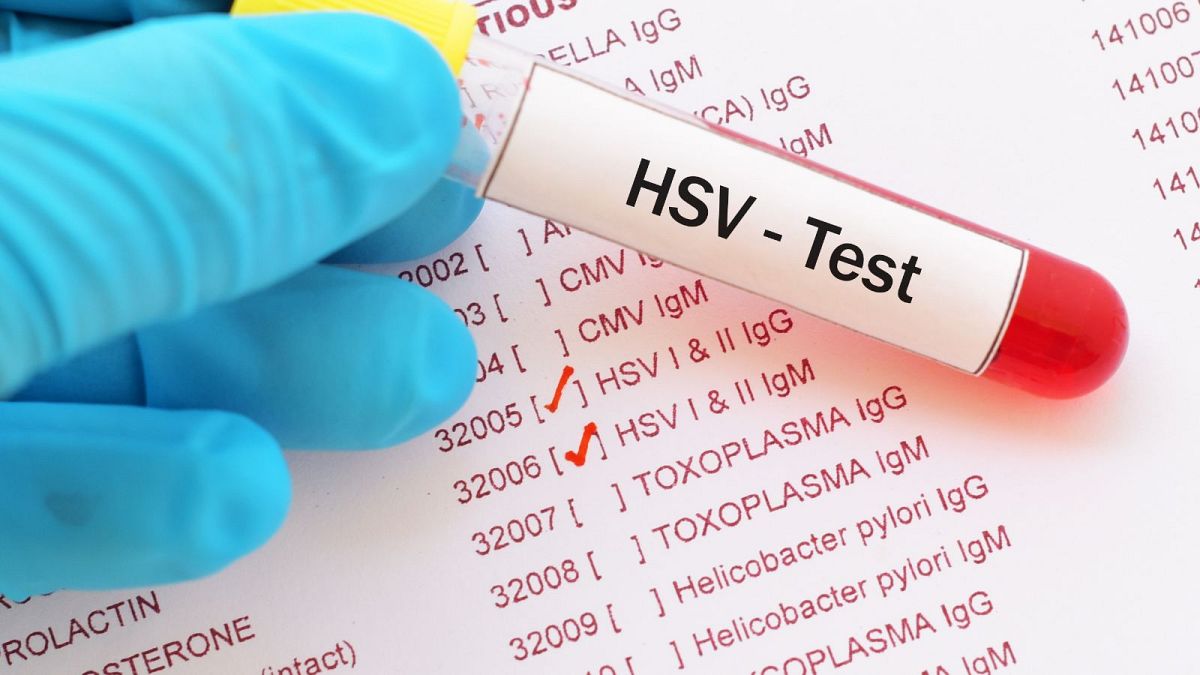Researchers estimated the economic cost of genital herpes across the globe in 2016, with the Western Pacific region and the Americas the most burdened.
Genital herpes cost the world $35.3 billion (€32.9 billion) in medical care and lost productivity in a single year, new estimates show.
In 2016, the viral strain that causes genital herpes (HSV-2) and its consequences accounted for $31.2 billion (€29 billion) in costs, while HSV-1 (which can cause both oral and genital herpes) cost an estimated $4 billion (€3.7 billion), according to the researchers from the College of Pharmacy of University of Utah Health, the World Health Organization (WHO), and other academic institutions.
While prior studies have estimated the economic cost of herpes in low-income countries, the researchers said their analysis of 194 countries is the first to tally the global financial toll from genital herpes, which is among the most common sexually transmitted infections.
About 67 per cent of the world’s population have HSV-1, while 13 per cent have HSV-2, the WHO says.
Most infected people have mild or no symptoms, but herpes can cause uncomfortable cold sores, blisters, or ulcers that reappear over time and can spread through skin-to-skin contact.
“The COVID-19 pandemic has reminded us of the importance of viruses as a threat to health, often going well beyond the acute infection,” Martin McKee, a professor at the London School of Hygiene and Tropical Medicine and former president of the European Public Health Association (EUPHA), told Euronews Health in an email.
He was not involved with the study but said it “makes a good case for accelerating efforts to develop vaccines and, importantly, these should seek not just to prevent infections but to treat existing ones”.
In the study, most of the costs were tied to recurrent outbreaks from HSV-2, with medical bills accounting for $22 billion (€20.4 billion).
Another $12.3 billion (€11.4 billion) were indirect costs via lost productivity, and $1 billion (€932 million) were due to direct, nonmedical costs such as transportation.
Although herpes is very common, its broader economic toll varies considerably based on the region, according to the study, which was published in the journal BMC Global and Public Health. Wealthier countries bore the brunt of the costs: $27 billion (€25.2 billion), or 76.6 per cent of the total costs, were in high- and middle-income countries.
The Western Pacific region and the Americas were also hard hit, accounting for a respective 34.6 per cent and 24.4 per cent of the estimated costs. Researchers said people there may be more likely to get a diagnosis and seek care for herpes, and that treatment is more expensive.
If everyone with symptomatic genital herpes sought care and was treated appropriately, the economic burden would nearly double, largely due to increases in Europe and Africa, they said.
Regional health dynamics also help explain the variation. In the Americas, for example, neonatal herpes – which is rare but has a high fatality rate – cost $58 million (€54 billion), accounting for roughly half of the global burden.
Meanwhile, the African region saw $219.4 million (€204 million) in costs tied to HIV treatment.
People with HSV-2 have a three times higher risk of getting HIV, according to the WHO. The viruses can also affect eye and brain health.
While there are no cures or vaccines available for herpes, the study authors said greater investment in vaccine development could help minimise its financial and disease burden.
Other researchers have said that policy decisions on whether to offer herpes vaccines through international cooperatives would likely be based on public demand and how much money the vaccines could save health systems and economies.
Elena Petelos, president of the EUPHA’s global health section, said in an email that “advances in vaccine technology offer huge potential, but we need to find ways to ensure that everyone can benefit”.















